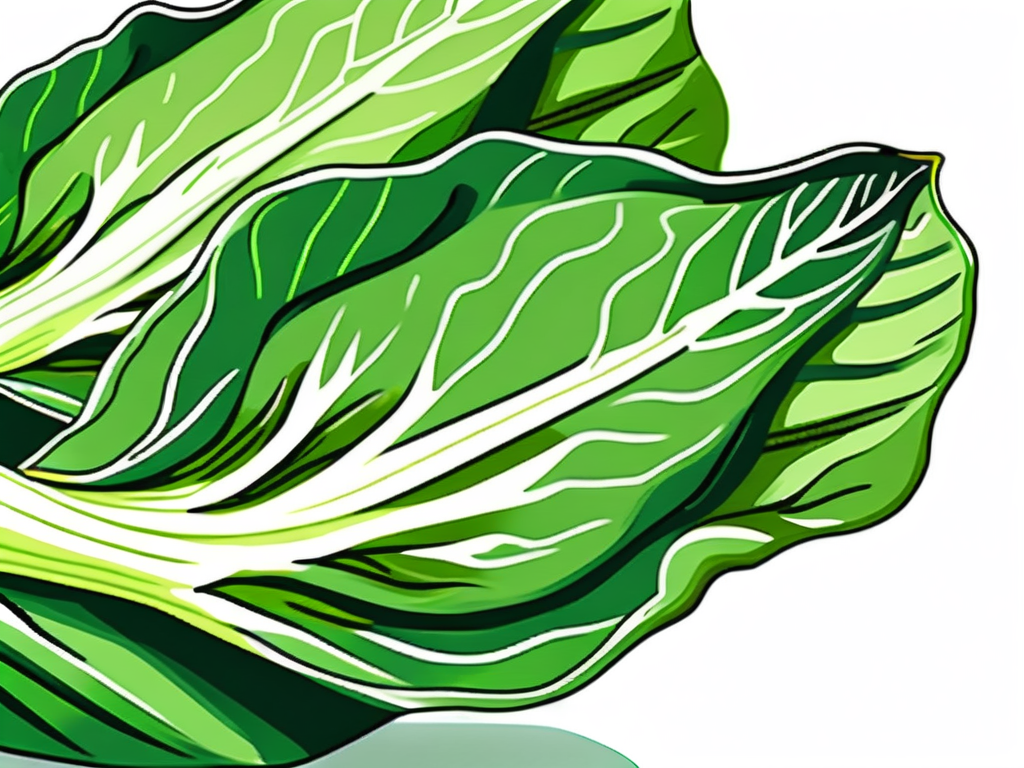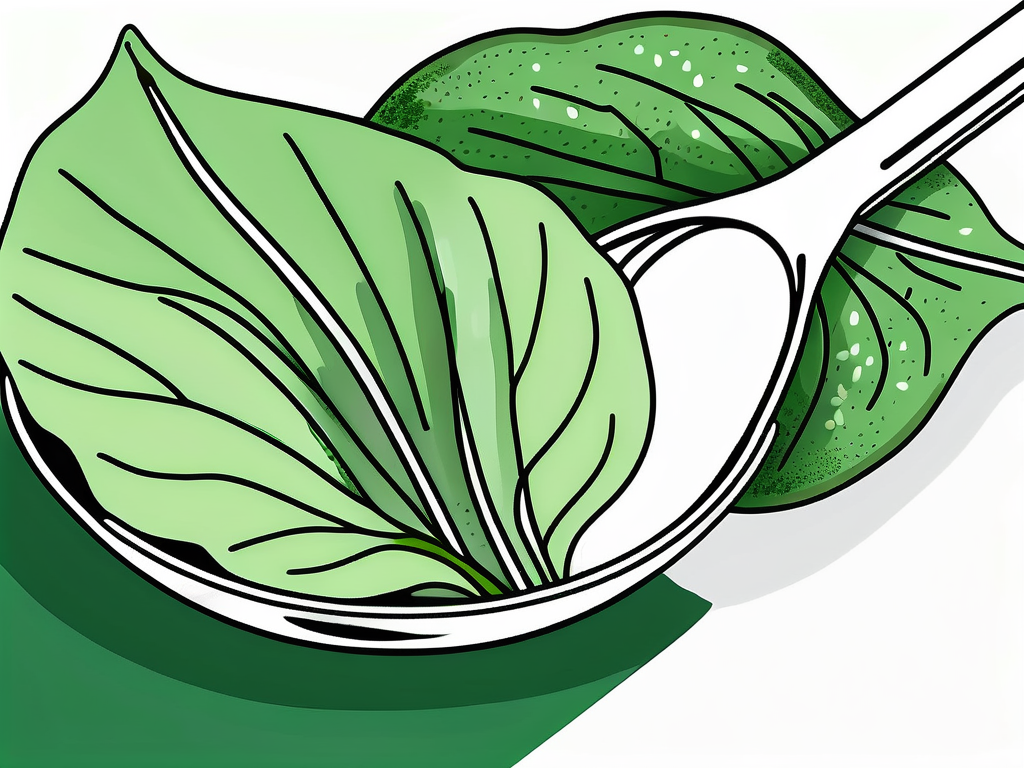Bok choy is a popular vegetable in Chinese cuisine known for its crisp texture and mild flavor. If you follow a low FODMAP diet, you might be wondering if bok choy is a suitable choice for you. In this article, we will explore the relationship between bok choy and FODMAPs, and discover how you can incorporate this nutritious vegetable into your low FODMAP meals.
Understanding FODMAPs
Before we delve into the specifics of bok choy and its FODMAP content, let's first understand what FODMAPs are and why they are important for digestive health.
What are FODMAPs?
FODMAPs stands for Fermentable Oligosaccharides, Disaccharides, Monosaccharides, and Polyols. They are a group of carbohydrates and sugar alcohols that are poorly absorbed by the small intestine. When consumed in large amounts, FODMAPs can cause digestive symptoms such as bloating, gas, and abdominal pain in some individuals.
It's important to note that not all carbohydrates are considered FODMAPs. For example, rice and quinoa are low in FODMAPs and are generally well-tolerated by most people. However, foods like onions, garlic, wheat, and certain fruits contain high levels of FODMAPs and may trigger symptoms in sensitive individuals.
Why are FODMAPs Important for Digestive Health?
For people with certain digestive disorders, such as irritable bowel syndrome (IBS), FODMAPs can trigger symptoms and worsen their condition. Following a low FODMAP diet, which involves restricting the intake of high FODMAP foods, has been shown to alleviate symptoms and improve quality of life for many individuals with IBS.
Research has also suggested that FODMAPs may play a role in other gastrointestinal conditions, such as small intestinal bacterial overgrowth (SIBO) and functional dyspepsia. By understanding the impact of FODMAPs on gut health, individuals can make informed dietary choices to manage their symptoms and improve overall well-being.
The Nutritional Profile of Bok Choy
Bok choy is not only delicious but also packed with essential nutrients that can contribute to your overall health and well-being. Let's take a closer look at the key nutrients found in bok choy.

Originating from the cabbage family, bok choy, also known as Chinese cabbage, is a leafy green vegetable that is widely used in Asian cuisine. Its mild, slightly peppery flavor and crisp texture make it a versatile ingredient in various dishes, from stir-fries to soups.
Key Nutrients in Bok Choy
Bok choy is an excellent source of vitamins A, C, and K. These vitamins play crucial roles in maintaining healthy skin, boosting the immune system, and promoting blood clotting. Additionally, bok choy provides essential minerals such as potassium, calcium, and iron, which are vital for various bodily functions.
Moreover, bok choy is low in calories and carbohydrates, making it a great choice for those looking to add nutrient-dense foods to their diet. It is also rich in antioxidants, such as beta-carotene and lutein, which help protect the body against chronic diseases and inflammation.
Health Benefits of Bok Choy
Adding bok choy to your diet can offer several health benefits. Its high vitamin C content supports immune function and promotes collagen production for healthy skin. Bok choy is also rich in antioxidants that help protect cells from damage caused by harmful free radicals. Furthermore, the presence of fiber in bok choy contributes to digestive health and may aid in maintaining a healthy weight.
Due to its high water content, bok choy can also help keep you hydrated and promote healthy skin. The combination of vitamins, minerals, and antioxidants in bok choy makes it a valuable addition to a balanced diet, supporting overall health and well-being.
Bok Choy and FODMAPs
Now, let's address the burning question: Is bok choy low FODMAP?

Before we delve into the details, let's take a moment to appreciate the unique characteristics of bok choy. Also known as Chinese cabbage, bok choy belongs to the cruciferous vegetable family and is packed with essential nutrients like vitamin C, vitamin K, and fiber. Its crunchy texture and mild, slightly sweet flavor make it a versatile ingredient in various culinary dishes, from stir-fries to soups.
FODMAP Content in Bok Choy
Luckily for bok choy enthusiasts, this leafy green vegetable is considered low in FODMAPs. Bok choy contains minimal amounts of the FODMAPs that can trigger digestive symptoms, making it a safe choice for individuals following a low FODMAP diet.
Furthermore, bok choy is a rich source of antioxidants, such as beta-carotene and lutein, which contribute to its vibrant green color and potential health benefits. These antioxidants play a crucial role in reducing inflammation and protecting cells from damage caused by harmful free radicals.
How Cooking Methods Affect Bok Choy's FODMAP Levels
It's worth noting that the way you cook bok choy can influence its FODMAP levels. Certain cooking techniques, such as boiling or stir-frying, can reduce FODMAP content in vegetables. Therefore, if you prefer your bok choy cooked, be mindful of the cooking methods you choose to minimize the chances of FODMAPs being released.
Additionally, incorporating bok choy into your meals can provide a significant source of calcium, iron, and other essential minerals that are vital for maintaining bone health and overall well-being. Whether enjoyed raw in salads or cooked in savory dishes, bok choy offers a delightful crunch and a nutritional boost that can enhance your culinary experience and support your dietary needs.
Incorporating Bok Choy into a Low FODMAP Diet
Now that we know bok choy is low FODMAP, let's explore some delicious ways to include it in your low FODMAP meals.

Bok choy, a leafy green vegetable rich in vitamins A and C, is not only a great addition to a low FODMAP diet but also offers a unique flavor and texture to your dishes. Its crunchy stems and tender leaves make it a versatile ingredient that can be used in various cooking methods.
Delicious Low FODMAP Recipes with Bok Choy
1. Bok Choy Stir-Fry: Sauté bok choy with low FODMAP vegetables, such as bell peppers and carrots, in a small amount of garlic-infused olive oil for a flavorful and nutritious meal. Add protein sources like tofu or shrimp for a complete and satisfying dish.
2. Bok Choy Salad: Combine sliced bok choy with low FODMAP ingredients like cherry tomatoes, cucumber, and feta cheese. Drizzle with a low FODMAP dressing made with olive oil, lemon juice, and herbs for a refreshing salad option that is perfect for a light lunch or side dish.
3. Bok Choy Soup: Create a comforting soup by simmering bok choy in a low FODMAP vegetable broth with ginger and a hint of tamari sauce. Add rice noodles or quinoa for a heartier soup that is both nourishing and delicious.
Experimenting with bok choy in your low FODMAP meals can introduce you to new flavors and textures while providing essential nutrients to support your overall health.
Tips for Eating Out on a Low FODMAP Diet
Eating out while following a low FODMAP diet can be challenging, but with careful planning, you can still enjoy meals at restaurants. When ordering dishes that may contain bok choy, communicate your dietary requirements with the staff and ask for customized options that fit your low FODMAP needs.
Many restaurants are willing to accommodate dietary restrictions and can offer substitutions or modifications to ensure your meal is low FODMAP friendly. It's helpful to research restaurant menus in advance, choose simple dishes with known ingredients, and be clear about your needs to avoid any potential triggers.
Other Low FODMAP Vegetables to Consider
If you're looking to further diversify your low FODMAP diet, here are some other vegetables that are low in FODMAPs:
List of Low FODMAP Vegetables
- Carrots
- Bell peppers
- Lettuce
- Zucchini
- Eggplant
While these vegetables are great options for a low FODMAP diet, there are even more choices available to add variety to your meals and ensure you are getting a wide range of nutrients. Some other low FODMAP vegetables to consider include spinach, kale, collard greens, and Swiss chard. These leafy greens are not only low in FODMAPs but also packed with vitamins, minerals, and antioxidants that are beneficial for your overall health.
How to Diversify Your Diet with Low FODMAP Foods
Expanding your low FODMAP food options can be enjoyable and beneficial for your overall health. Experiment with different vegetables, fruits, and spices that are low in FODMAPs to create exciting and varied meals. Additionally, consulting a registered dietitian who specializes in the low FODMAP diet can provide you with personalized guidance and meal ideas.
When planning your low FODMAP meals, consider incorporating a variety of protein sources such as tofu, tempeh, poultry, and fish to ensure you are meeting your nutritional needs. Pairing these proteins with a mix of low FODMAP vegetables and grains like quinoa, rice, and oats can help you create balanced and satisfying meals that support your digestive health.